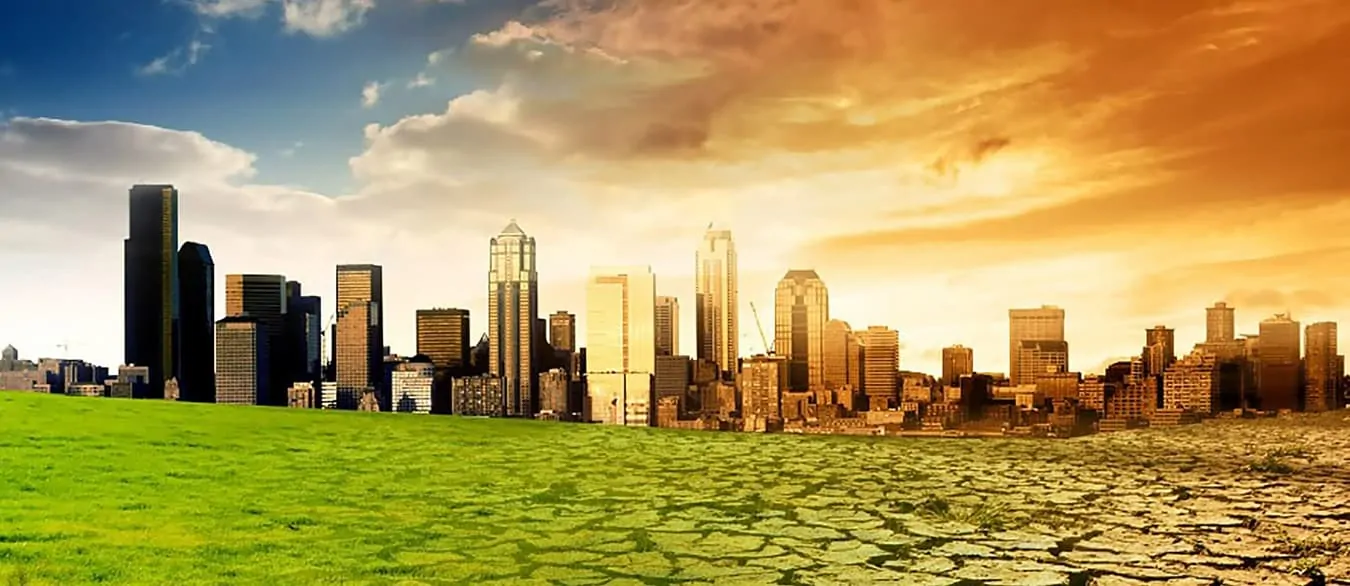15 Oct Global Warming

Recently, Intergovernmental Panel for Climate Change (IPCC) released its latest analysis of global warming problem. It said that decision taken by countries at a conference in Paris in December 2015, to limit increase in mean surface temperature of our planet to 1.5 degree centigrade, will result is less adverse environmental problems than adverse effects caused by a 2 degree increase. For example, by 2100, global sea level rise would be 10 cm lower with global warming of 1.5°C compared with 2°C. The likelihood of an Arctic Ocean free of sea ice in summer would be once per century with global warming of 1.5°C, compared with at least once per decade with 2°C. Coral reefs would decline by 70-90 percent with global warming of 1.5°C, whereas virtually all (> 99 percent) would be lost with 2 degree C.
However, there are a few important people who refuse to see such warnings. Donald Trump famously said that global warming is a hoax invented by the Chinese to attack US manufacturing. The two houses of American parliament – Senate and House of Representatives – have many persons who have been patronised by industries that exploit coal, oil and gas. Also, Trump has filled his cabinet with climate change sceptics and deniers. Deputy prime minister of Australia, Michael McCormack, said Australia should “absolutely” continue to use and exploit its coal reserves, despite the IPCC’s dire warnings the world has just 12 years to avoid climate change catastrophe. He said his government will not change policy “just because somebody might suggest that some sort of report is the way we need to follow and everything that we should do”.
Why do such people support consumption of fossil fuels ? Because very often, it is their bread and butter. Coal sector provides 60% of Australia’s electricity and supports 50,000 jobs. Hence, McCormack called it as “very, very important”. In China, construction of coal-based electricity plants, which was halted for some time, have resumed. Once completed, the new plants will increase coal-based electricity generation capacity by 25%.
But then same people refuse to see potential adverse consequences of global warming problem. Australia has privilege of having world’s largest coral reef. It has been designated by UNESCO as a World Heritage Site. But if mean surface temperatures rise by 2 degree C, all of this reef will be lost. Louisiana, a state in USA, contains five of America’s 12 busiest ports and billions of dollars of oil-and-gas infrastructure, including 16 petroleum refineries and thousands of miles of pipeline. However, between 2004 and 2008, the state lost 300 square miles of its land to sea because of rising sea levels and increased frequency of hurricanes. In 2005, hurricane Katrina flooded New Orleans which is the state’s largest city, and caused 1,836 deaths.
So then, what are solutions?
They are plenty. But implementing them requires efforts, willingness and determination. Willingness to not take wrong decisions for purpose of keeping one’s constituency happy. Effort to motivate polluters to become green crusaders. In our country, price of solar-generated electricity dropped to a record Rs 2.44 per unit last year (after bidding for 500 megawatt of projects in Rajasthan was over). Compare that to Rs 3.20 cost for NTPC to generate electricity from fossil fuels. If government of our country makes it mandatory for a discom (company that purchases electricity from generating companies and distributes it amongst homes, offices, factories and commercial places) to purchase carbon-free electricity in increasing percentage every year, then our country will achieve easily, its target of 1.6 lakh MW of electricity generation from renewable resources. Sweden decided 5 years ago that it will become carbon neutral by 2020. Norway is working towards battery powered ships. Last year, government of Paris city decided to have all vehicles in its area, free of fossil fuels by 2030. Target of government of France for entire country, is 2040.
Let us Indians too, move towards a safer and greener world.
-by Prof. Zubin Sethna


